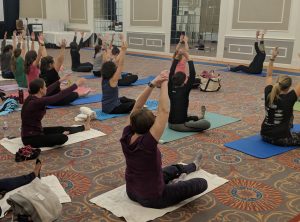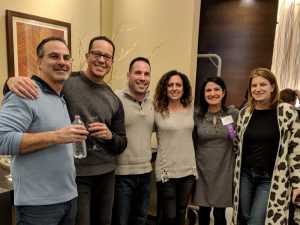Congratulations to Bobbie Pineda, PHD, OTR/L renowned clinician, research scientist, and ERI faculty member on receiving the 2018 Patricia Buehler Legacy Award for Clinical Innovation from the University of Southern California. Bobbie teaches “Assessment and Intervention with the High-Risk Infant in the NICU and During the Transition to Home,” a popular two-day ERI course that focuses on the practical strategies to address behavioral, developments and feeding assessment and intervention with high-risk infants in the NICU. The course has helped countless neonatal therapist enhance observational and clinical skills that improve patient outcome in the NICU and during the transition home.
[caption id="attachment_6054" align="alignright" width="300"]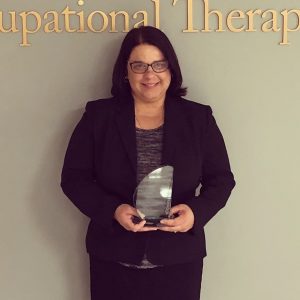 ERI faculty member, renowned clinician, and research scientist Bobbie Pineda, PHD, OTR/L receives the 2018 Patricia Buehler Legacy Award for Clinical Innovation from the University of Southern California.[/caption]
ERI faculty member, renowned clinician, and research scientist Bobbie Pineda, PHD, OTR/L receives the 2018 Patricia Buehler Legacy Award for Clinical Innovation from the University of Southern California.[/caption]
Stacy Sheppard, OT, who attended Bobbie’s ERI class, says, “Great course! Bobbie is a great teacher and a wealth of knowledge for anyone working in the NICU.” Student, Kyla Sherrard Ph.D., CCC-SLP says, “The level of research analysis combined with clinical application makes this a valuable course for any NICU therapist adding to the knowledge regardless of field.”
In 2019, ERI will offer Bobbie’s NICU course in six states across the country including Arizona, Kentucky, Georgia, Missouri, New York state, and California. Check out all the course details including cities and locations, by on the ERI website.
Join us in congratulating Bobbie on her most recent accomplishment and be sure to sign up for “Assessment and Intervention with the High-Risk Infant in the NICU and During the Transition to Home” today!
]]>
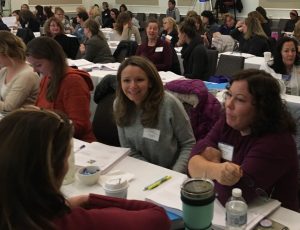
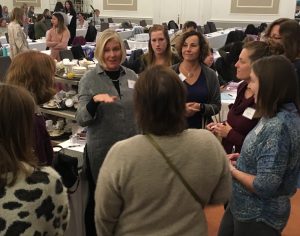 “If I can only attend one conference per year, this is it! I consider it a smorgasbord: a conference where I can come and be exposed to many different topics related to my professional all in two days!” – B. Tremblay, Lake Placid, NY
“If I can only attend one conference per year, this is it! I consider it a smorgasbord: a conference where I can come and be exposed to many different topics related to my professional all in two days!” – B. Tremblay, Lake Placid, NY